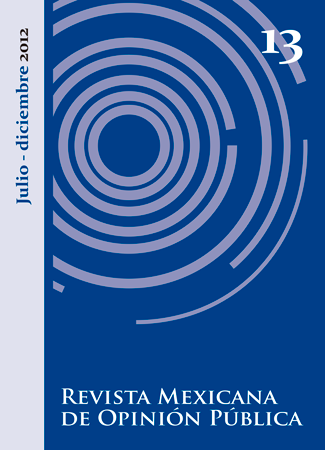Tracking the presidential campaigns 2012 in social networks: an exploratory study
Main Article Content
Abstract
The impact of social networks during presidential campaigns is a new field of study. This paper analyzes, for the first time, the role of Twitter –one of the three fastest growing networks– during the 2012 Mexican electoral process. The construction of a mixed methodology allowed us to build robust quantitative indicators that provided information for our qualitative interpretation of the use of social networks by all the different candidates and citizens as well. We also assessed the impact of such use on public opinion and on the inclusion of emerging issues in the political agenda. We confirmed two hypotheses: first, social networks performed as a nonregulated means of expression for citizens as well as a testing ground for political strategies forwarded by the candidates. Second, networks interact amongst themselves as well as with the international and national press, selected as our privileged media. Hence, our conclusion was that there is a growing influence of networks in novel forms of participation in presidential elections, showing that democracy is thus strengthened.
Article Details
Citas en Dimensions Service

Revista Mexicana de Opinión Pública por Universidad Nacional Autónoma de México se distribuye bajo una Licencia Creative Commons Atribución-NoComercial-SinDerivar 4.0 Internacional.
Basada en una obra en http://revistas.unam.mx/index.php/rmop.




